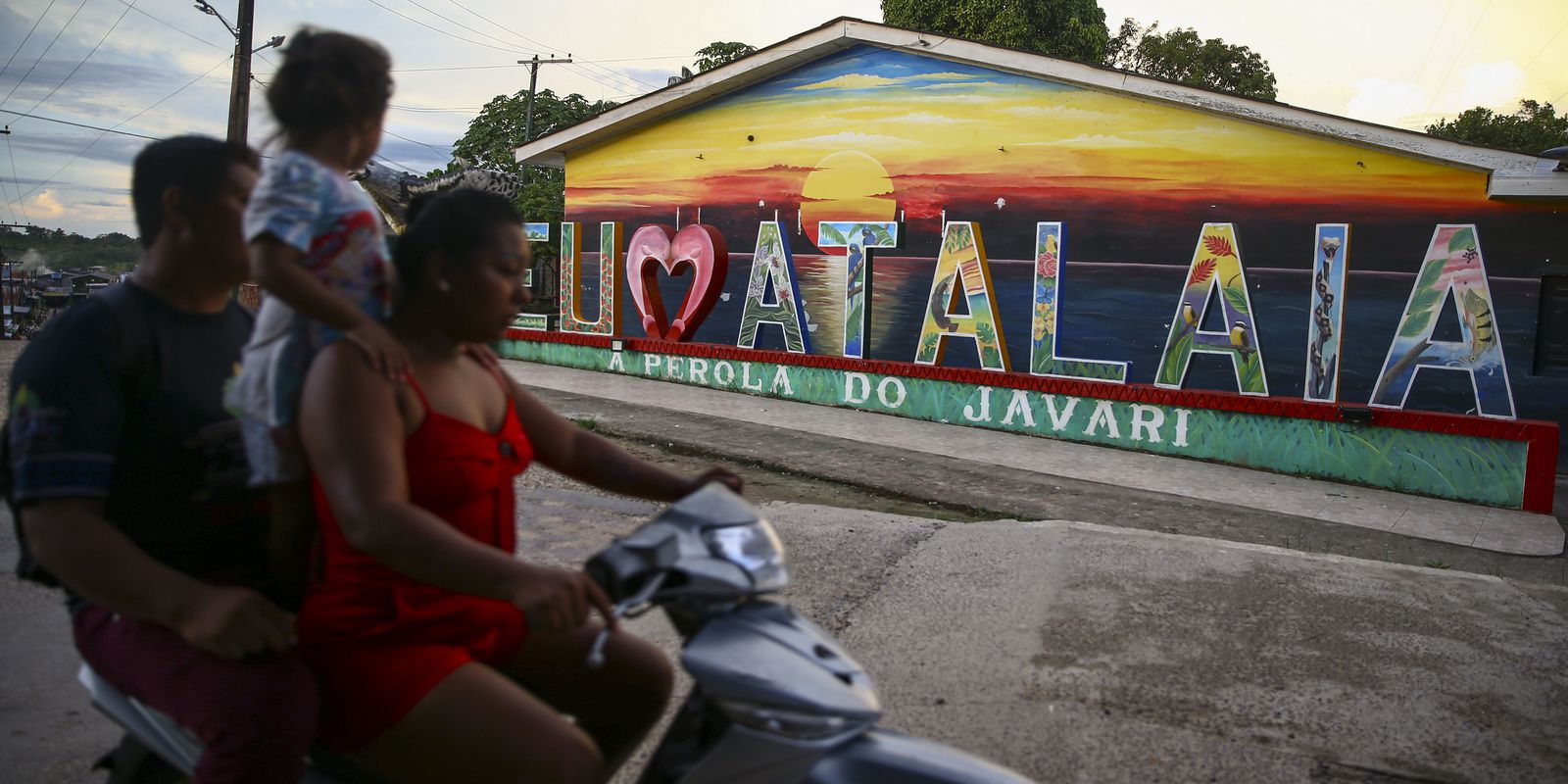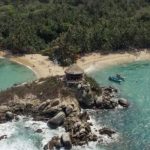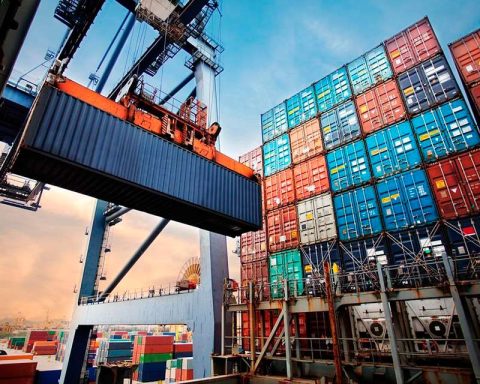to join the Javari Valley, the visitor needs to visit some cities in the Amazon. after reaching tabatinga, where the nearest airport is located, you need to take a boat to Benjamin Constant and, from there, a car to Atalaia do Norte. All this in the midst of the vastness of the largest tropical forest in the world and close to the Amazon Triple Frontier, a region of intense conflicts due to drug trafficking and land interests.
The distance between the municipalities of Benjamin Constant and Atalaia do Norte, where the headquarters of the União dos Povos Indígenas do Vale do Javari (Univaja) is located, is about half an hour by car, when there is no rain to delay the trip.
In the surroundings and on the road that connects the two cities, there is no shortage of symbols of those who hold power: the Masonic lodge, the Universal Church of the Kingdom of God, the Assembly of God and other religious congregations are always present in the landscape.
Still on the road, a tuk-tuk, a kind of motorized tricycle, crushes soda and beer cans in the opposite direction. An excavator turns over garbage thrown on the grass, in the open, amidst vultures. In the far north of the country, it is possible to see that Atalaia shares some of the problems seen in large urban centers.
The landscape changes little compared to Tabatinga, where catraias, small boats that look like speedboats, arrive and depart from, tearing the river. In Atalaia, most houses are made of wood. Some are on stilts, which stand over dark water. Close to the port, when commerce starts to show up, there are more properties with glass in the windows, which, after walking inland, proves to be a rarity. There are no culverts where rainwater can be drained. And the number of properties with half construction is large.
Atalaia do Norte is the hometown of the sisters Karla* and Patrícia*, who experience firsthand some of the dramas that affect the municipality. Karla is a victim of domestic violence and says that when she lived with her husband, she was constantly attacked and prevented from working due to excessive jealousy.
After several episodes, she decided to denounce her partner, who was taken by the police to the police station. In the unit, he committed suicide. Karla says that she finds it difficult to accept the fact and that she felt a judgment, on the part of the local society, for her husband’s death.
“On the day it happened, he was breaking everything inside the house, and my two children were witnessing everything. That’s when I said I was going to call the police, because he wasn’t even listening to his mother, who tried to calm him down. That’s when they came, he was detained”, he recalls.
“When they returned, they gave me the news that he had committed suicide, and nobody saw it. We left here [da cidade de Atalaia]. It’s like I killed him. At night, the police took me to Benjamin, across the river, because they said that some families were after me, to kill me. When I arrived, my aunt hid me, as if I had really done it. They were about to send me to Peru. I saw little of his wake,” she reports.
Karla comments that she had intentions of separating from her husband, when she made the complaint, and that the attacks began during her pregnancy with her first child, who is 8 years old, four years old than the youngest. She also claims that, at the time, she was unaware of the extent of the violence to which her husband subjected her.
“My mother knew, but I called and she said that it was only increasing. We separated, I ended up coming back. She said that there, at some point, it was going to end in tragedy”, he adds. “Here, this type of violence still happens a lot, as unbelievable as it is.”
After her husband’s death, which turned 3 years old, Karla decided to take a technical nursing course. However, she still faces obstacles to getting a job – which she attributes, in part, to the imaginary of local society that she would be to blame for the tragic death of her partner. Factors such as the unemployment rate in the region and the occupation of vacancies by political indications also weigh.
In Karla’s resume, there are only odd jobs, no formal work. A portrait that is also seen in the official data of the country. In 2022, the number of people without a formal employment contract increased by 14.9% compared to 2021 and reached 12.9 million, according to data from the Brazilian Institute of Geography and Statistics (IBGE). In Atalaia do Norte, only 7% of the population of 15,000 inhabitants was employed in 2020, according to the IBGE.
To ensure food on the table for her two children, she receives state aid. “I already had the desire to get out of here”, she vents. “It’s a lot about politics here.”
sexual violence
While waiting for a job to guarantee financial autonomy, Karla has the support of her family. Her sister, a year younger, is one of the people who guarantee this support, but who also faces difficulties in finding it in the formal job market.
Patricia has been to Peru twice in search of job opportunities.
The first time, in 2014, did not last long, due to the lack of a network of contacts in the neighboring country. On the second attempt, in 2019, she met her current husband. Together, they opened a clothing company that went bankrupt. In an attempt to save the business, they borrowed money from a loan shark, but were unsuccessful.
Today, Patrícia’s source of income is the money she earns from selling cakes. “It’s hard for him [o marido] get a job here, he doesn’t speak the language,” he says.
In addition to the similarity regarding the lack of professional perspective, the sisters share a sad history: they are victims of gender violence. Patrícia says that she began to suffer sexual abuse from a neighbor when she was 8 years old. But she can’t remember when the beatings ended. Her only child, aged 11, is the result of rape.
Today, Patrícia is doing psychological follow-up. “I sought help because there came a time when I thought about taking my life because of this issue, because people always make me feel guilty about it.”
For her, public policies to protect children and adolescents are essential to prevent cases like yours from happening again. “Sometimes, the person is not arrested, due to lack of evidence. But what evidence? The person is there telling their story. Nobody is going to invent this”, she adds.
Over the last decade (2012 to 2021), 583,100 people were victims of rape and vulnerable rape in Brazil, according to police records. According to the Brazilian Yearbook of Public Security, in 2021 alone, 66,020 reports of rape and vulnerable rape were registered in Brazil, a rate of 30.9 per 100,000 and a growth of 4.2% compared to the previous year.
Sexual violence in Brazil is, in most cases, a crime perpetrated by someone known to the victim, relative, colleague or even an intimate partner: 8 out of 10 cases recorded last year were committed by an acquaintance, according to the Yearbook. The fact that the author is known to the victim makes the crime even more complex and the complaint a challenge for the victims.
In Brazil, 9 out of 10 rape victims were at most 29 years old when they suffered sexual violence. There is still a strong concentration of this crime in childhood: 61.3% of all victims were children and adolescents between 0 and 13 years old.
A Brazil Agency asked the city hall of Atalaia do Norte for a position on measures to generate employment and combat gender violence. It also asked for a response on policies aimed at children and adolescents and is awaiting a response.
*Names changed to preserve the identity of the interviewees.


















